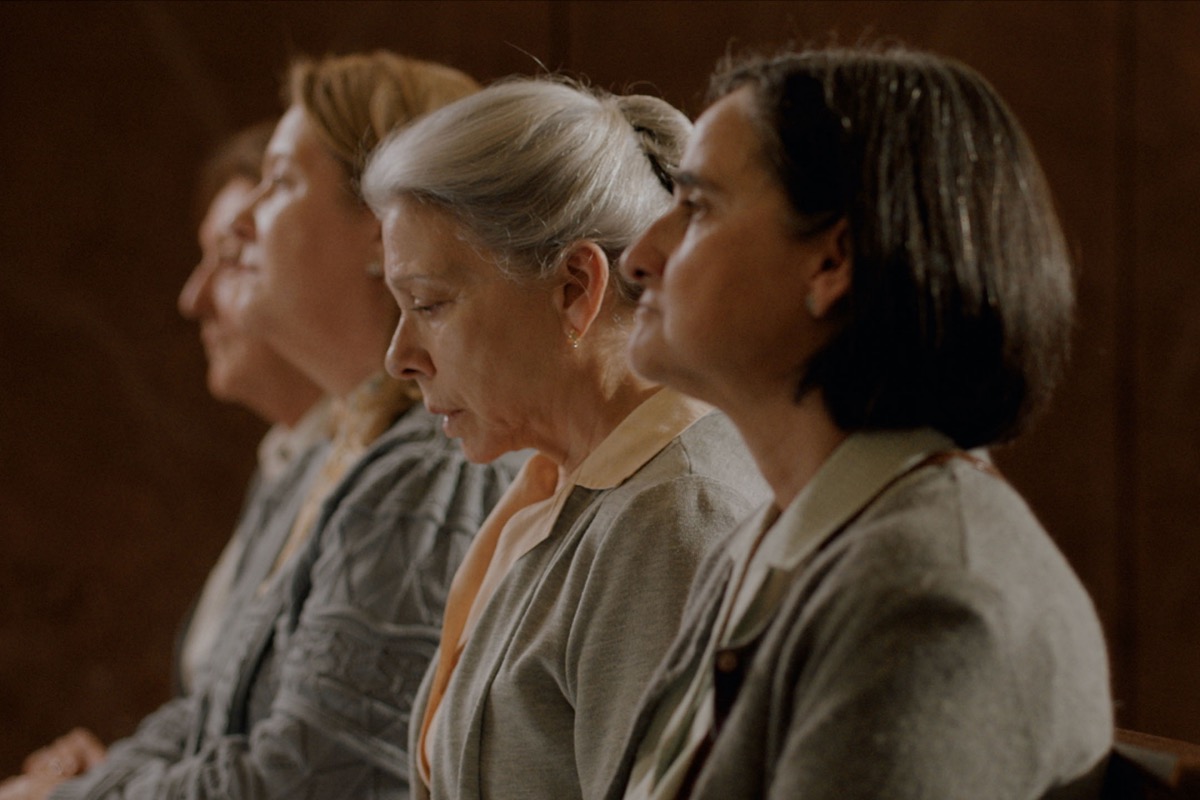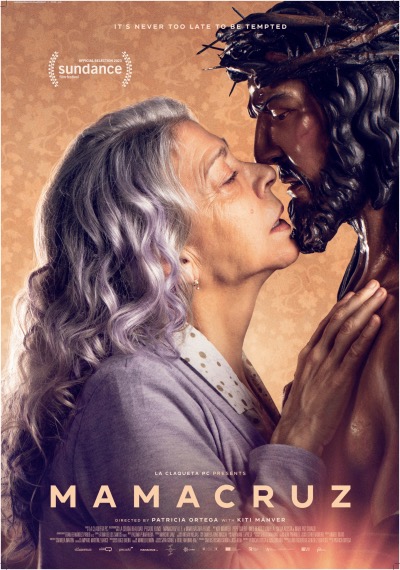

Kiti Mánver appears in ‘Mamacruz’ by Patricia Ortega, an official selection of the World Dramatic Competition at the 2023 Sundance Film Festival. (Courtesy of Sundance Institute)
The 2023 Sundance feature Mamacruz by Venezuelan director and co-writer Patricia Ortega is a subtle and complex comedy that never makes its aging protagonist the butt of its jokes. The film shows la abuela Cruz, played with heart by Spanish actress Kiti Mánver, rediscovering her sexuality after years of being the good, older Catholic woman—you know the type who goes to Mass more than one day a week, finds no joy in her body, and pressures her daughter to work less and mother more.
In less empathetic hands, Cruz might be an object of ridicule if not a downright villain. But Ortega’s gentle script and direction take a new approach, nudging Cruz along a slow progression from repressed to realized, thanks to the filmmaker’s insightful introspection and use of humor.
“I was very interested in talking about these problems —sexuality, identity, guilt, the need to find ourselves in the midst of the impositions that society (puts on) us just for being women— that present at all ages,” says Ortega told Latino Rebels.
Cruz’s journey starts with sexuality, having accidentally stumbled upon porn online. While she initially covers the visuals with her hands as she tries to turn it off (and later lights a candle at her altar), she keeps going back, late at night, when her household is asleep.
Once she’s lit all the candles and googled “softer” porn, she learns of a sex therapy group from the busybodies at her church who are throwing away the promotional flyers. Once they’ve left, Cruz grabs a copy out of the trash and soon finds herself in a group of middle-aged white women whose camaraderie helps Cruz better understand herself.
Of the friend group, Ortega said, “I needed each woman to be different in their skills, their way of talking, and their bodies.” And they are, ranging from bawdy to reserved, hippy to preppy. To achieve this mix, Ortega recounts how they combined professional screen actresses with community theater ones, which resulted in “magic because you feel like (you’re watching) a real conversation between them.”
It was important for the filmmaker to make the members of this group look like real and distinct people—specifically Ortega’s mother and her friends. “I am an immigrant… so I am always the stranger, the person who talks different, who thinks different,” Ortega said. “So for me, it’s very important that the group of women reflect that diversity (and) reflect that we can communicate beyond our difference.”
Cruz finds hope in this found group of women and brings her learnings home to improve her relationship with her daughter and granddaughter.
In each member of this multigenerational family, Ortega portrays characters at crucial and fraught stages of femininity: The granddaughter has her first period, the daughter struggles to balance career and motherhood, and matriarch Cruz battles societal expectations that would erase her. And the climax of the film comes when Cruz apologizes to her grown daughter for all the ways she enforced society’s limiting expectations of what a woman should be, instead of supporting her daughter to be who she really is.


Poster for ‘Mamacruz’ (Courtesy of Sundance Institute)
In these ways, Mamacruz takes a compassionate look at what it is to be a woman and is such a woman’s film that there’s only one male character, Cruz’s husband, Eduardo. He’s such a nonentity that for the first 20 minutes or so, I was unsure if he’d have a single line (he does eventually speak, instead of merely snore).
But Ortega has compassion even for him, saying he was the most difficult character for her to write, because “I didn’t meet my father. I only saw him one time in my life… And I had to forgive my father, to write the character of Eduardo. I had to put myself in his body and try to think like him, to connect with his vulnerability and with his problems.” The result is a fearful character who grows, if only slightly, over the course of the film, inspired by how his wife has transformed herself.
That Ortega gave so much of herself to this script is telling. Mamacruz is a deeply human film that invites us to sympathize with a woman who is finally learning how to be the hero of her own story in her third act. And her path to self-actualization is beautiful to behold.
***
A writer and activist, Cristina Escobar is the co-founder of latinamedia.co, uplifting Latina and gender non-conforming Latinx perspectives in media. She’s a member of the Latino Entertainment Journalists Association and writes at the intersection of race, gender, and pop culture. Twitter: @cescobarandrade


